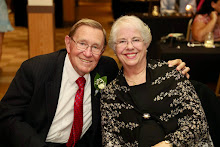In 2002 in the wake of revelations over the horrendous sex abuse scandals, Fr. Andrew Baker from the Diocese of Allentown, on the staff of the Congregation for Bishops in Rome penned an article for America Magazine, the Jesuits' mouthpiece. You won't be surprised to know that this was accompanied by another article defending the ordination of homosexuals. Where do the bishops stand on this issue today? Many still consider homosexuality no impediment to ordination. Have any spoken out about the scandal of Archbishop Weakland's new book? I'm not aware of any. I fear the scandal is far from over, that it has simply gone underground while the "safe touch" programs give the appearance of the bishops taking strong action.
ORDINATION AND SAME SEX ATTRACTION
AMERICA MAGAZINE, SEPTEMBER 30, 2002
Every bishop possesses the sacred duty of discerning the suitability of candidates for holy orders. St. Paul’s advice to Timothy is fitting for all bishops, especially today: “Do not lay hands too readily on anyone” (1 Tim. 5: 22). The church’s life and the way it manifests itself as the sacrament of salvation for the entire world leans inextricably on the shoulders of her priests. The supernatural “health,” one could say, of the church depends heavily on the fitness of candidates for ordination.
In the aftermath of the scandal of clerical sexual abuse of minors, the church and society have focused partly on the role of homosexuality. The question has arisen as to whether or not it is advisable for a bishop to admit a man with predominantly homosexual tendencies, or what some call “same sex attraction” (S.S.A.), to the seminary and/or present him for holy orders.
Thanks to a recent Circular Letter in 1997 from the Congregation for Divine Worship and the Discipline of the Sacraments concerning the suitability of candidates for holy orders, some guidance and assistance from the Holy See have already been given in order to tackle the thorny and difficult issue of suitability.
The letter says that a vocation is based on “a moral certitude that is founded upon positive reasons regarding the suitability of the candidate.” Next, it mentions the fundamental reason not to admit a candidate to holy orders. The document says: “Admission may not take place if there exists a prudent doubt regarding the candidate’s suitability (Canon 1052 §3 with Canon 1030). By ‘prudent doubt’ is meant a doubt founded upon facts that are objective and duly verified.” Later, the congregation advises that it would seem “more appropriate to dismiss a doubtful candidate” than to lament the sadness and scandal of a cleric abandoning the ministry.....
It would seem that if there are firmly established facts, both from an objective psychological evaluation and an examination in the external forum of past and present behavior and choices, that a man does indeed suffer from S.S.A. as an “exclusive or predominant sexual attraction toward persons of the same sex” (Catechism, No. 2357), then he should not be admitted to holy orders, and his presence in the seminary would not only give him false hope but it may, in fact, hinder the needed therapy and healing that might come from appropriate psychological and spiritual care. It may be that a man could be healed of such a disorder and then he could be considered for admission to the seminary and possibly to Holy Orders, but not while being afflicted with the disorder.
The Pauline exhortation not to “lay hands too readily on anyone” is a heavy responsibility for any bishop; but if a candidate’s suitability is scrutinized with prudence, the act of “laying on of hands” will bear abundant fruit in the lives of those who will be touched by the ministry of a priest. Read the complete article.
An Open Letter to Governor Abigail Spanberger
19 hours ago


No comments:
Post a Comment